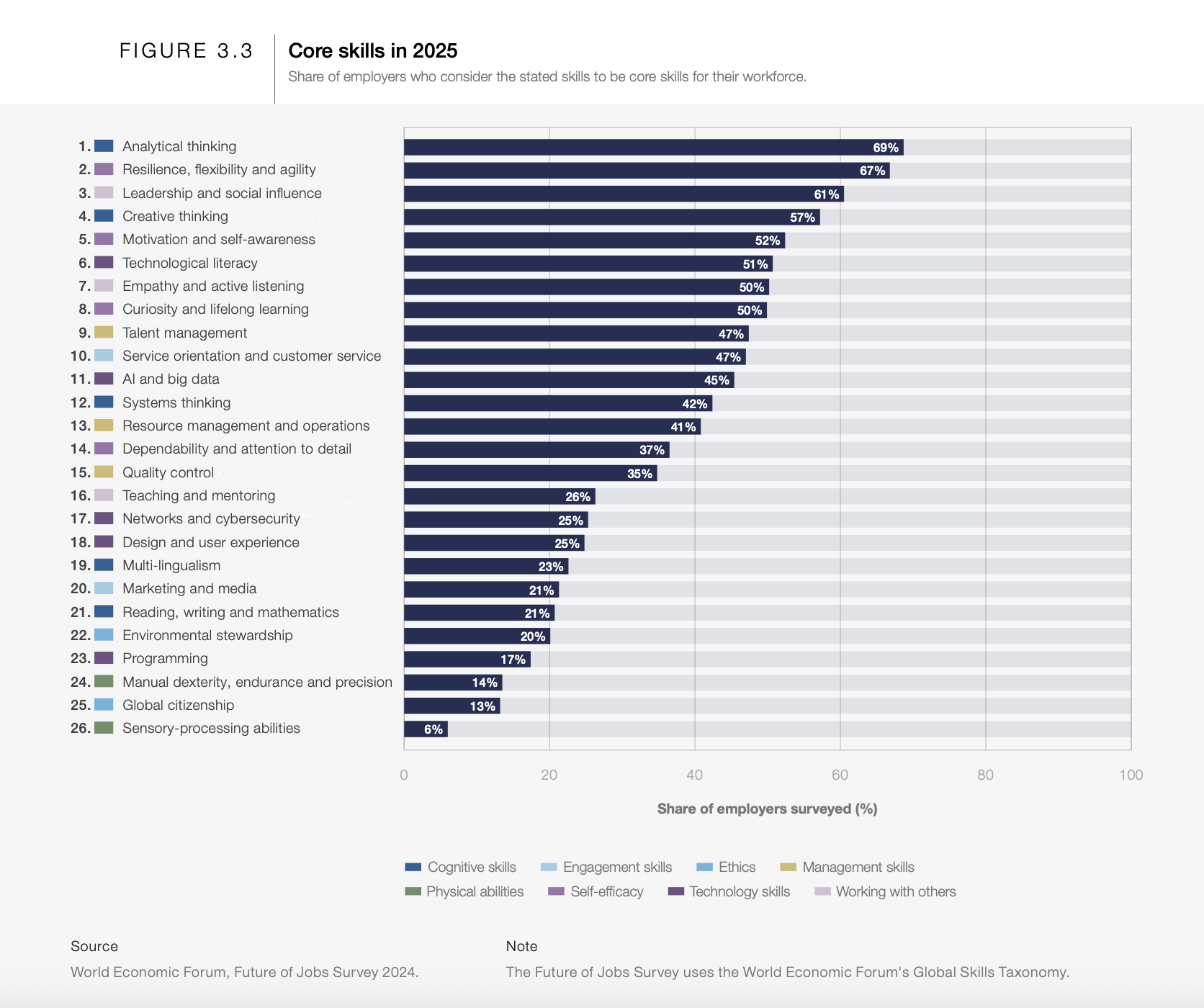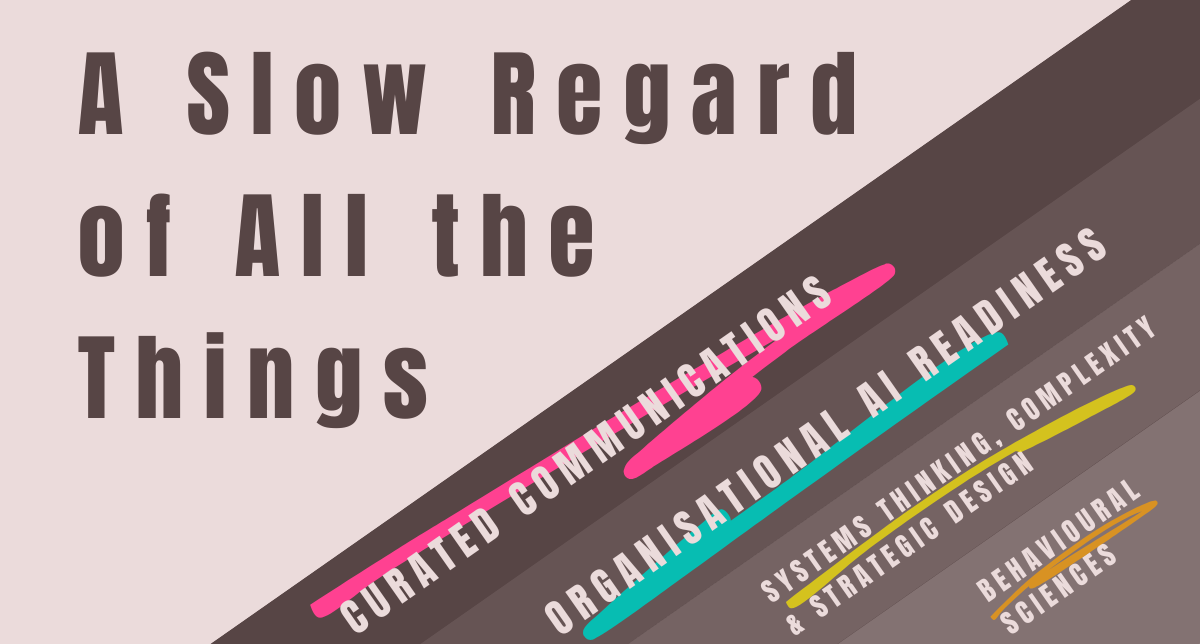A Tale of Crops and Soil — Organisational AI Readiness
The crop — aka your Generative or Predictive AI output — will only be as juicy as the soil — aka your people — in which it grows. So don’t let your soil degrade, nourish it instead.
TL;DR Organisational AI readiness requires strategic long-term vision and a mind that can resist getting distracted by the hype elements of AI technology. Imagine yourself to be a farmer. You want high-yield crops, but if you don’t mind the health of your soil, the crop will fail in time. The soil is your organisation’s backbone: its culture, collaborative processes, your team’s inherent creativity and analytical thinking ability. Nourish it.
AI Tools Used: Perplexity for a spell check and TL;DR first draft
———
Why this odd title?
Warning: The next sentence is long. And I’m ok with that!
Given that the natural world is on fire yet somehow somewhere groups of certain someones managed to make us have heated debates about grammar instead (if you know, you know), I thought it particularly clever and incendiary to pull from a nature-based analogy in order to make my point about organisational AI readiness.
Prompt Engineering for Gen AI Galore
The generative element of AI technology will eventually reach the “Slope of Enlightenment” of the Gartner Hype Cycle, some may argue that we are already there. It is a moment in which the true power of an emerging technology begins to reveal itself. For LLMs, I am willing to stake my name on the fact that this true power is not Gen AI aiming at more output, faster renders, greater productivity.
(What will it be instead? The field is highly dynamic and complex, as is the world. So using LLMs with mapping complexity would probably be a good bet. I’d put my chips on Predictive AI for e.g. sentiment response testing for communications campaigns before they ever leave the workshop, but we’ll see.)
The Organisational Risk of Getting Distracted by the New Shiny Thing
It isn’t just that this technology continues to evolve so rapidly. If, as a communicator for instance, one wants to understand the role of LLMs in tomorrow’s business environment, one must look at their influence over us, our use of media and our sense of self.
To do that, an entirely different set of skills has to be cultivated. Take a look for instance at the World Economic Forum’s “Future of Jobs Report 2025”. Note how “Technological Literacy” is in the 6th position, then look at the skills that would be considered “soft” surrounding it:
Creativity, Empathy, Social Influence. In short: soft skills are now hard skills and we need to cultivate the ability to remain flexible and formulate strategy in complexity. If you’d like to be a bite more “researchy” about it, the work on Future Skills by Dr. Ulf-Daniel Ehlers is most compelling, as is the entire area of the IDGs (Inner Development Goals) for Sustainable Development.
But what is the risk of not getting this right? And what does that have to do with soil and crops?
Enabling Structures for Organisational AI Readiness
The emergence of monocultures and our ability to artificially increase crop productivity with fertilisers and pesticides has enabled wildly profitable capitalism. Produce more, sell more, invest less, gain efficiencies. And let the negative side-effects fall to the wayside for a later generation to pick up and bitterly bemoan. Hello 2025!
We have known for decades that this style of farming depletes soils and diminishes their ability to produce nutrient dense crops. The result: our fruit and veg still look yummy, but have lost a lot of nutrient density and we now have to eat, say, 2 paprikas to get the nutrient load of 1 paprika of a nutrient-rich past.
If you want to know more about this, this paper by David R. Montgomery and Anne Biklé on soil health and nutrient density is most illuminating.
I am noticing a similarly detrimental thing happening with AI technologies (at least according to my social and media bubble). Your organisational culture, your processes, your human capital and the “soft” skills outlined in the Future of Jobs Report are your soil. Your Gen AI newsletter is your crop.
I Don’t Like Surprises
In a recent interview, Sam Altman reflected on the fact that people use ChatGPT as a therapist, a lawyer, or a doctor and disclose confidential information. ChatGPT isn’t bound by any laws around e.g. doctor-patient confidentiality. What baffled me is that he seemed so pensive and gently surprised that people could do such a thing. He called for legislation and regulation being needed. To which I say: are you for real?
You built one of the most powerful AI companies in the world and haven’t thought people would use it in this way? It was more predictable than the Titanic hitting an iceberg, honestly. There are excellent scenario planning tools I can recommend.
I am, as an English friend of mine likes to say, “a bit worried”. For clarity, she explains that to the English mind “a bit worried” means “the house is on fire”.
So, I am a bit worried. But I am not surprised. Neither should you be when it comes to AI technologies and their effects on the health of your organisation.
Bottom Line
Whether you are a part of the soil or a farmer, please do a bit of scenario planning, don’t get caught up in the productivity hype and don’t repeat the mistakes we’ve been making during the rise of monoculture.
Invest in your people. Make sure your soil wriggles with life and delight, is self-sustaining in its productivity, has diversified and rotating crops, and supports the wider ecosystem around you. You’ll be creating an organisation that is truly AI ready, resilient to change (which is the only constant) and won’t need quite as much artificial fertiliser.
Which would be lovely news for your bottom line, yes?
As an aside that just popped into my head:
The future of media use by our audiences is uncertain. If we have all perfected and fully automated our targeted outreach filled with irresistibly AI-ified content, the competition for someone’s inbox will render the inbox in general, and with it email marketing, mute. We will need the humanities, the mediatisation PhDs, the culture studies Masters of Arts to help guide us. But that’s a story for another day.
A Slow Regard of All the Things by Tom Zamzow - Communications and Brand Mangement


